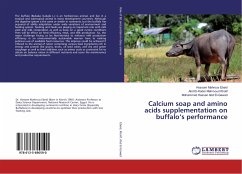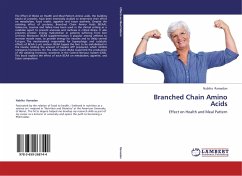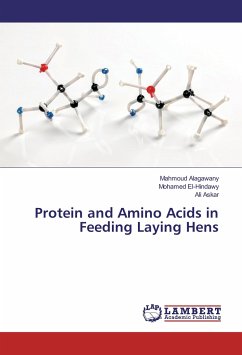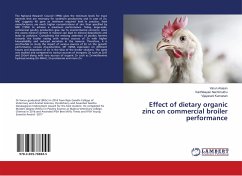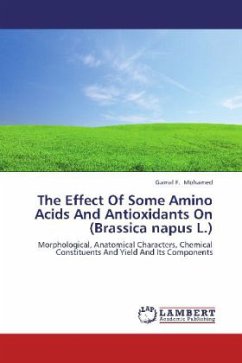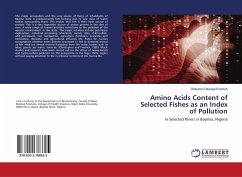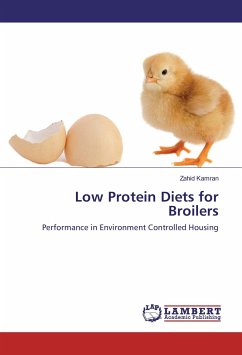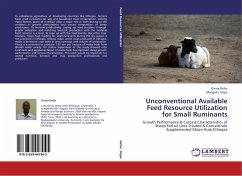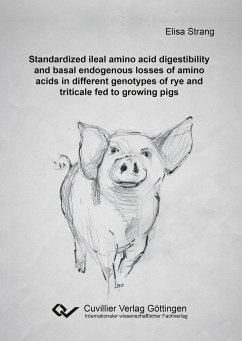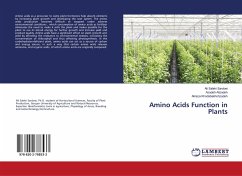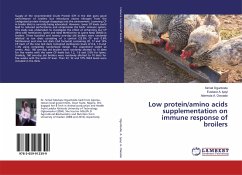
Low protein/amino acids supplementation on immune response of broilers
Versandkostenfrei!
Versandfertig in 6-10 Tagen
36,99 €
inkl. MwSt.

PAYBACK Punkte
18 °P sammeln!
Supply of the recommended Crude Protein (CP) in the diet gives good performance of broilers but introduces excess nitrogen from the undigested protein through droppings into the environment. Lowering CP in broiler diets is currently being advocated. However, lower CP levels could lead to reduced performance and compromise the birds' immune system. This study was undertaken to investigate the effect of enhancing low CP diets with methionine, lysine and Ideal Methionine to Lysine Ratio (IMLR) in broilers. Three hundred and twenty one-day old broilers were randomly allotted to ten diets consistin...
Supply of the recommended Crude Protein (CP) in the diet gives good performance of broilers but introduces excess nitrogen from the undigested protein through droppings into the environment. Lowering CP in broiler diets is currently being advocated. However, lower CP levels could lead to reduced performance and compromise the birds' immune system. This study was undertaken to investigate the effect of enhancing low CP diets with methionine, lysine and Ideal Methionine to Lysine Ratio (IMLR) in broilers. Three hundred and twenty one-day old broilers were randomly allotted to ten diets consisting of a control (23.0% CP and 0.6% Methionine) and nine test diets (3x3 factorial) containing 20, 17 and 14% CP. Each of the nine test diets contained methionine levels of 0.6, 1.0 and 1.4% using completely randomized design. The experiment lasted six weeks. Also, 160 one-day old broilers were randomly allotted to 10 diets for five weeks with the same CP levels but 1.2, 1.6 and 2.0% for lysine. Similarly, 160 one-day old broilers were randomly allotted to 10 diets for five weeks with the same CP level. Then 47, 52 and 57% IMLR levels were included in the diets.



